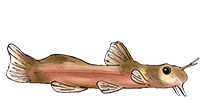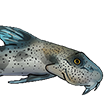NEW TANK QUESTION
NEW TANK QUESTION
HELLO I AM GETTING A 150 GALLON TANK IN A FEW WEEKS. I CURRENTLY HAVE 5 COLOMBIAN SHARKS 3 PICTUS AND TWO AFRICAN BROWN KNIFES AND A GREEN SPOTTED PUFFER. I HAVE FOUND CONFLICTING INFO ON THE SHARKS. SOME PLACES SAY THE ONLY GET 8 IN AND OTHER SAY THEY GET 2 FEET. ALSO I HAVE SEEN THAT THEY ARE ONLY FREST/BRACKISH WHEN YOUNG AND REQUIRE FULL SALT WATER WHEN ADULT. RIGHT NOW MY TANK IS FULLY BRACKISH WITH BRACKISH FISH. HOW BIG TO THEY GET AND DO THEY REALLY NEED ALL SALTWATER?
ALL ANIMALS DESERVE RESPECT AND LOVE. THEY HAVE BEEN HERE LONG BEFORE US AND WILL STILL BE LONG AFTER WE ARE GONE.
- MatsP
- Posts: 21038
- Joined: 06 Oct 2004, 13:58
- My articles: 4
- My images: 28
- My cats species list: 117 (i:33, k:0)
- My aquaria list: 10 (i:8)
- My BLogs: 4 (i:0, p:164)
- Spotted: 187
- Location 1: North of Cambridge
- Location 2: England.
Gina,
Welcome to Planet Catfish (I suppose I should really have written that in the Speak Easy forum).
Can I first inform you that one of the forum rules is that you put your location (state+country in the US, otherwise just country is good enough - more details welcome if you feel happy giving out more). It helps us give you better advice on things that depend on your location, such as shops, medications and often also tap water conditions.
Another forum rule is to not "shout", which means don't type in all capitals. If for some reason you can't use the shift-key to make capitals, then it's better to type in all lower-case.
Sorry for piling on rules, but as you're new, I think it's fair to let you know what you're doing wrong as soon as I can, rather than let you make the same mistake more times unknowingly.
Colombian sharks are most likely:
There are some other "shark catfish" too, but that's the most likely candidate. The above species should be able to reach around a foot in size. Other species in the genus Hexanematichthys grow to over three feet - but the most likely is that you have the above one.
And yes, the shark catfish will at maturity prefer a fully marine setup, and unfortunatley, not very good to go with the other commonly kept marine creatures, as the common marine fish are too fragile for this rather boisterous species.
--
Mats
Welcome to Planet Catfish (I suppose I should really have written that in the Speak Easy forum).
Can I first inform you that one of the forum rules is that you put your location (state+country in the US, otherwise just country is good enough - more details welcome if you feel happy giving out more). It helps us give you better advice on things that depend on your location, such as shops, medications and often also tap water conditions.
Another forum rule is to not "shout", which means don't type in all capitals. If for some reason you can't use the shift-key to make capitals, then it's better to type in all lower-case.
Sorry for piling on rules, but as you're new, I think it's fair to let you know what you're doing wrong as soon as I can, rather than let you make the same mistake more times unknowingly.
Colombian sharks are most likely:
There are some other "shark catfish" too, but that's the most likely candidate. The above species should be able to reach around a foot in size. Other species in the genus Hexanematichthys grow to over three feet - but the most likely is that you have the above one.
And yes, the shark catfish will at maturity prefer a fully marine setup, and unfortunatley, not very good to go with the other commonly kept marine creatures, as the common marine fish are too fragile for this rather boisterous species.
--
Mats
I am sorry about the all caps it is habit, at the pharmacy everything is in caps. And that is the fish i have(they are so cute) so two of the ones I have are around 9in. When they are full adults to I need to get salt water tank or add more aquarium salt or is there a difference? And if they dont get salt water what will happen? Also I will fix my profile.
ALL ANIMALS DESERVE RESPECT AND LOVE. THEY HAVE BEEN HERE LONG BEFORE US AND WILL STILL BE LONG AFTER WE ARE GONE.
- MatsP
- Posts: 21038
- Joined: 06 Oct 2004, 13:58
- My articles: 4
- My images: 28
- My cats species list: 117 (i:33, k:0)
- My aquaria list: 10 (i:8)
- My BLogs: 4 (i:0, p:164)
- Spotted: 187
- Location 1: North of Cambridge
- Location 2: England.
Aquarium salt is the same as "pure table salt", i.e. sodium chloride without the "anticaking agents and iodine supplement". These additives are usually found in the salt you buy in the supermarket, because most people don't want the salt to become one big lump (no surprise) and iodine is a useful supplement to human diet.
Marine salt is what's recommended for marine tanks. It's less pure in regards to sodium chloride, as it contains a mixture of other salts that are naturally present in the sea-water. Most marine salts available in the trade is "man-made", i.e. someone mixes up a bunch of different "pure" salts into a mix that reflects what they think customers want - mostly adding extras of things that are needed in tropical marine tanks, such as calcium.
I have never kept these fish myself (partly because of their need of marine environment as well as needing larger tanks than I've got).
Note that you have to GRADUALLY transition them to a marine environment, not just plop move from a brackish tank to a marine...
I imagine these fish will live quite a long while without proper conditions, but I would also say that to reflect their natural habitat you should have them at something close to marine conditions.
I think this subject has been discussed before, so you may want to do a "Forum search" for the species name I gave above.
--
Mats
Marine salt is what's recommended for marine tanks. It's less pure in regards to sodium chloride, as it contains a mixture of other salts that are naturally present in the sea-water. Most marine salts available in the trade is "man-made", i.e. someone mixes up a bunch of different "pure" salts into a mix that reflects what they think customers want - mostly adding extras of things that are needed in tropical marine tanks, such as calcium.
I have never kept these fish myself (partly because of their need of marine environment as well as needing larger tanks than I've got).
Note that you have to GRADUALLY transition them to a marine environment, not just plop move from a brackish tank to a marine...
I imagine these fish will live quite a long while without proper conditions, but I would also say that to reflect their natural habitat you should have them at something close to marine conditions.
I think this subject has been discussed before, so you may want to do a "Forum search" for the species name I gave above.
--
Mats





